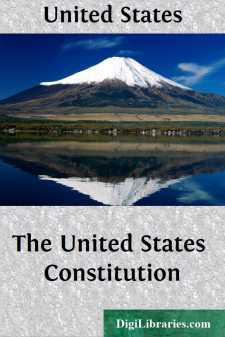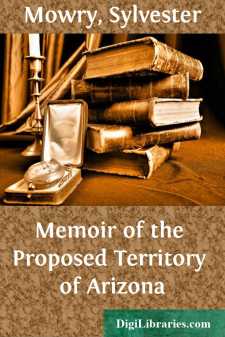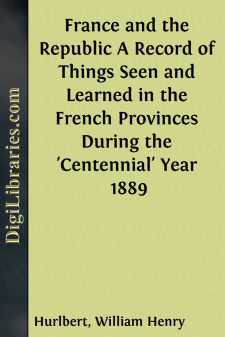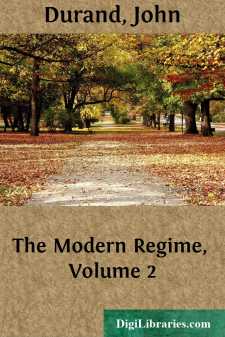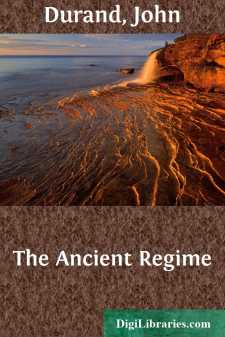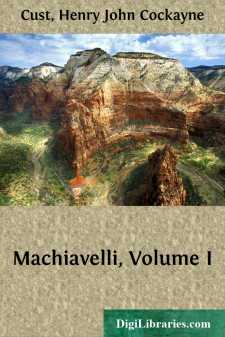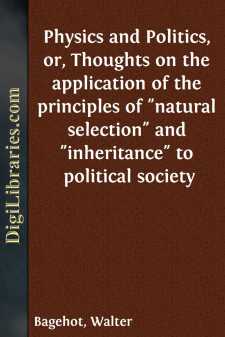Political Science
Political Science Books
Sort by:
by:
United States
Ratified December 15, 1791 I Congress shall make no law respecting an establishment of religion, or prohibiting the free exercise thereof; or abridging the freedom of speech, or of the press, or the right of the people peaceably to assemble, and to petition the Government for a redress of grievances. A well-regulated militia, being necessary to the security of a free State, the right of the people to...
more...
by:
United States
Article I Section 1. All legislative Powers herein granted shall be vested in a Congress of the United States, which shall consist of a Senate and House of Representatives. Section 2. The House of Representatives shall be composed of Members chosen every second Year by the People of the several States, and the electors in each State shall have the qualifications requisite for electors of the most...
more...
by:
Sylvester Mowry
"The NEW TERRITORY of ARIZONA, better known as the GADSDEN PURCHASE, lies between the thirty-first and thirty-third parallels of latitude, and is bounded on the north by the Gila River, which separates it from the territory of New Mexico; on the east by the Rio Bravo del Norte, (Rio Grande), which separates it from Texas; on the south by Chihuahua and Sonora, Mexican provinces; and on the west by...
more...
INTRODUCTION I This volume is neither a diary nor a narrative. To have given it either of these forms, each of which has its obvious advantages, would have extended it beyond all reasonable limits. It is simply a selection from my very full memoranda of a series of visits paid to different parts of France during the year 1889. These visits would never have been made, had not my previous acquaintance...
more...
by:
John Durand
PREFACE By André Chevrillon. "To treat of the Church, the School, and the Family, describe the modern milieu and note the facilities and obstacles which a society like our own encounters in this milieu, such was the program of the last section of the "Origins of Contemporary France." The preceding volume is a continuation of the first part of this program; after the commune and the...
more...
by:
John Durand
INTRODUCTION Why should we fetch Taine's work up from its dusty box in the basement of the national library? First of all because his realistic views of our human nature, of our civilization and of socialism as well as his dark premonitions of the 20th century were proven correct. Secondly because we may today with more accuracy call his work: "The Origins of Popular Democracy and of...
more...
INTRODUCTION Niccolo Machiavelli, the first great Italian historian, and one of the most eminent political writers of any age or country, was born at Florence, May 3, 1469. He was of an old though not wealthy Tuscan family, his father, who was a jurist, dying when Niccolo was sixteen years old. We know nothing of Machiavelli's youth and little about his studies. He does not seem to have received...
more...
INTRODUCTION The Life of a Day. ' am at my farm; and, since my last misfortunes, have not been in Florence twenty days. I spent September in snaring thrushes; but at the end of the month, even this rather tiresome sport failed me. I rise with the sun, and go into a wood of mine that is being cut, where I remain two hours inspecting the work of the previous day and conversing with the woodcutters,...
more...
by:
Elihu Burritt
Elihu Burritt, well known on both sides of the Atlantic by his devoted labours for the good of mankind, especially in the promotion of peace and universal brotherhood, has recently paid a visit to some of the distressed parts of Ireland, principally with a view of sending a statement of facts, from his own observation, to his native country, together with an appeal on behalf of the sufferers under the...
more...
by:
Walter Bagehot
THE PRELIMINARY AGE. One peculiarity of this age is the sudden acquisition of much physical knowledge. There is scarcely a department of science or art which is the same, or at all the same, as it was fifty years ago. A new world of inventions—of railways and of telegraphs—has grown up around us which we cannot help seeing; a new world of ideas is in the air and affects us, though we do not see it....
more...



